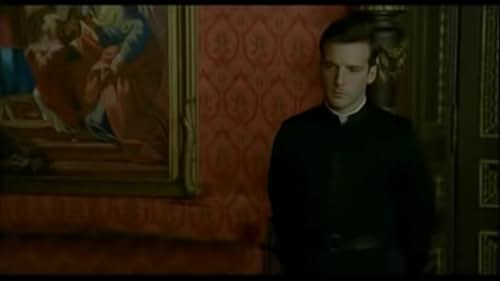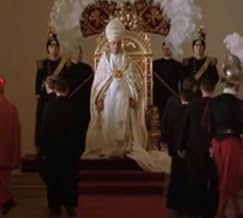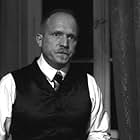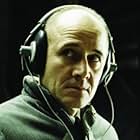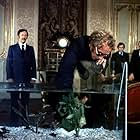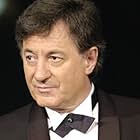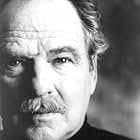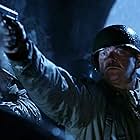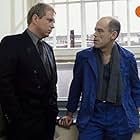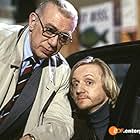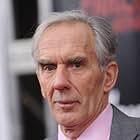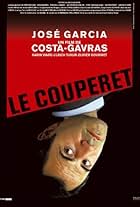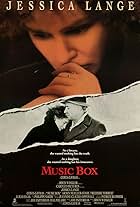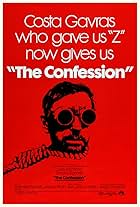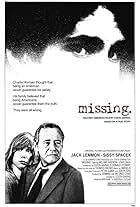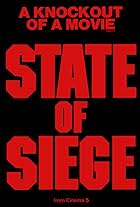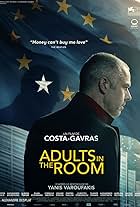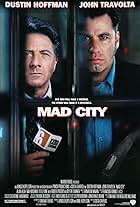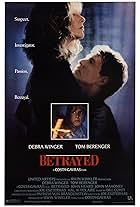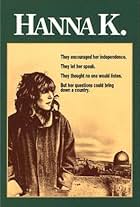During WWII SS officer Kurt Gerstein tries to inform Pope Pius XII about Jews being sent to extermination camps. Young Jesuit priest Riccardo Fontana helps him in the difficult mission to in... Read allDuring WWII SS officer Kurt Gerstein tries to inform Pope Pius XII about Jews being sent to extermination camps. Young Jesuit priest Riccardo Fontana helps him in the difficult mission to inform the world.During WWII SS officer Kurt Gerstein tries to inform Pope Pius XII about Jews being sent to extermination camps. Young Jesuit priest Riccardo Fontana helps him in the difficult mission to inform the world.
- Awards
- 4 wins & 9 nominations
- Director
- Writers
- All cast & crew
- Production, box office & more at IMDbPro
Storyline
Did you know
- TriviaStefan Lux was a Jewish Czech journalist, who committed suicide in the general assembly room of the League of Nations during its session on July 3, 1936, to alert the world on the perils of German anti-Semitism. After shouting "C'est le dernier coup" ("This is the final blow") he shot himself with a revolver.
- GoofsAt the end of the film, on the screen we read that Gerstein's written testimony helped to validate the events of the Holocaust. Then, "Kurt Gerstein was rehabilitated 20 years later." He could not have not been "rehabilitated", since he was found hanged in his cell in 1945. "Rehabilitated" should have been "exonerated".
- Quotes
[first lines]
Stephan Lux: [interrupting a session of the Assembly of the League of Nations, Geneve, 1936] My name is Stephan Lux. I am Jewish. The Jews are being persecuted in Germany and the world doesn't care.
[He draws a pistol]
Stephan Lux: I see no other way to reach people's hearts.
[He shoots himself]
- ConnectionsReferenced in Kaamelott: Amen (2005)
- SoundtracksThe Train I /II
Composed and arranged by Armand Amar
Orchestra:
Jean-Philippe Audin, Elsa Benabdallah, Igor Boranian, Fabien Boudot, Florent Bremond, Karen Brunon, Nathalie Carlucci, Hervé Cavellier, Emmanuel Gaugué, Thierry Köhl, Julien Leenhardt, Bobin Minalli Bella, Marthe Moinet, Yves Monciero, Philippe Morel, Amèlie Paradis, Emmanuel Raynaud, Alexandre Sauvaire
(P) & © 2002 Long Distance/France
The murder of his niece and the Jews appalls his Christian conscience. His wincing reaction whilst looking through the gas chamber spy-hole is well-acted. He alerts the Swedes and the Catholic Church, hoping that international pressure will awaken the German conscience. Catholic opposition has stopped the euthanasia programme and this can be mobilised to help the Jews.
In reality, Gerstein's options are limited. His own church leaders react mutely to his news of mass-murder. They caution restraint. Nazi indoctrination is trying to turn everyone into a rabid anti-Semite - as shown comically with Gerstein's youngest son giving annoying Hitler salutes. Most Protestants agree to join the new Nazi-sponsored 'Reich Church', happily reconciling faith with Nazism. Similarly, the 1933 Concordat with Hitler gave the Catholic Church a precarious protection as long as it stayed out of politics.
Carpet-bombing of German cities is killing women, children and babies. German forces are engaged in a titanic struggle against the 'forces of international Jewry ' - Russian Communism and American Capitalism. Facing this kind of mind-set and mass paranoia, the Jews needed a miracle. Saving mentally-handicapped members of German families is one thing. Saving a long-despised race thought to be the root cause of every world problem is very much another.
Gerstein's attempts to alert the Vatican are channelled through an invented character, a young Catholic priest who symbolises the conscience of thousands of individual Catholics who risked their lives to help Jews. He eventually sacrifices himself at Auschwitz, a Christ-like figure who 'redeems' his religion in the face of a terrible evil.
The controversial Pope Pius XII is portrayed in a curiously anodyne way - to the distaste of those who regard him as a Nazi sympathiser. The Vatican's fear of Communism, its efforts to hide Italian Jews and its self-preservation instinct in facing the Nazis are all clearly demonstrated. As is the help it gave to individual SS men on the run after the war. One is left to make up one's own mind about the Pope.
In truth, neither the Church nor the SS were monolithic organisations. Both were composed of individuals, good and bad. One reason for death factories was to save SS men from the horrors of mass-shootings. They offered a 'sanitised' method of killing, just as the 1933 Concordat offered a sanitised way for Nazism and Catholicism to relate to each other. Problems arose for individuals who had to make moral choices in carrying out these policies.
The controversial Roman lunch scene depicts the American ambassador discussing the fate of the Jews with Vatican big-wigs. Against a wonderful panoramic backdrop of the eternal city, they enjoy an excellent sea food meal. The American points out that finding an alternative home for millions of Jews would cause great problems. Nazi retaliation would only make things worse, counters a Vatican big-wig. A far cry from the cattle trucks rolling to and fro, emptying Europe of its Jews. This is a 'cheap shot' - decision-makers usually enjoy better material conditions than the rest of us. One can imagine Churchill discussing sensitive topics in a cold-blooded way over many a fine meal. It makes for good cinema, though!
This is an excellent film which covers a vast topic in 2 hours. It does not make judgements about Gerstein or the Christian churches. The Gerstein character is a complex one as is the Christian response to the Holocaust. It shows how difficult it is to 'buck the system' during wartime. Gerstein arrives at Auschwitz with the comforting knowledge that the allies 'never bomb the camps' - they know they are full of 'POW's'. Would prolonged bombing of the railways to the death camps have made a difference? Many Jews believe that this could and should have happened.
Should the allies have re-directed their military efforts to save Jews rather than merely fight the Nazis? Unfortunately, the 1930's and World War 2 had de-sensitised people to civilian suffering - newsreels from China, Abyssinia, Guernica; the Nazi bombing of Warsaw, Rotterdam, London, Coventry, the V1 and V2 attacks of 1944. World War I blurred the line between soldiers and civilians. World War 2 completely obliterated this distinction - on both sides of the conflict. Axis forces brought death to millions of Chinese and Russian civilians. The Allied bombing of Germany, Japan and northern France all produced heavy civilian casualties. Is there an essential difference between mass-bombing and the Holocaust?
European anti-Semitism aided the Holocaust. The miracle is that so many individual Gentiles did so much to aid Jews. Nazism put new ideas about human rights to the test. Governments and organisations may have been found wanting especially Vichy France. Individuals - including many brave Germans responded magnificently. This is the 'positive' side of the Holocaust which we should remember and treasure. Gerstein did his best to sabotage and stop the killing machine he became part of. The film allows us to make up our own minds about whether he and the Catholic Church did enough.
- max-vernon
- Feb 10, 2006
- Permalink
- How long is Amen.?Powered by Alexa
Details
- Release date
- Countries of origin
- Official sites
- Languages
- Also known as
- Âmin
- Filming locations
- Production companies
- See more company credits at IMDbPro
Box office
- Budget
- FRF 103,000,000 (estimated)
- Gross US & Canada
- $274,299
- Opening weekend US & Canada
- $16,284
- Jan 26, 2003
- Gross worldwide
- $8,419,052
- Runtime2 hours 12 minutes
- Color
- Sound mix
- Aspect ratio
- 1.85 : 1
Contribute to this page


